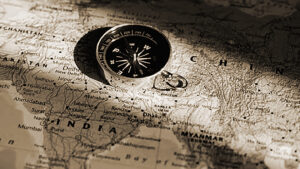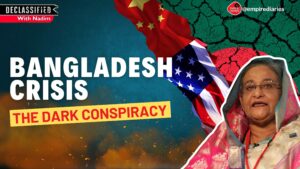April 24, 2024: It’s been about a week since an investigation found that Swiss food giant Nestle sells two of its baby food products with high levels of added sugar in low-income and mid-income countries, including in India. While Indian authorities are probing the matter, the investigation into Nestle’s practices has raised fresh questions about modern-day, corporate-style colonisation of low-income and mid-income civilisations – a point that the probe itself has raised.
A joint investigation by the Swiss NGO Public Eye and IBFAN (International Baby Food Action Network) has concluded that the two Nestle products, Cerelac and Nido, contain zero added sugar in the conglomerate’s home country of Switzerland. In contrast, the two baby food offerings contain high levels of added sugar in markets such as in Asia, Africa, and South America.
The joint probe, titled ‘How Nestlé gets children hooked on sugar in lower-income countries’, has found that in India, where Nestle’s “sales surpassed $250 million in 2022, all Cerelac baby cereals contain added sugar, on average nearly three grams per serving. The same situation prevails in South Africa, the main market on the African continent, where all Cerelac baby cereals contain four grams or more of added sugar per serving. In Brazil, the world’s second-largest market, with sales of around $150 million in 2022, three-quarters of Cerelac baby cereals (known as Mucilon in the country) contain added sugar, on average three grams per serving”.
The highest amount – 7.3 grams per serving – was detected in a product in the Philippines. The maximum value (5.3 grams) was detected in a product sold in Panama. In Switzerland and in Nestlé’s major European markets, the products are sold without any added sugar, according to the Public Eye – IBFAN investigation.
In fact, the investigation tries to understand the whole episode from the perspective of modern-day colonialism, quoting an expert to that effect. “I do not understand why products for sale in South Africa should be different from those that are sold in high-income settings,” says Karen Hofman, professor of Public Health at University of Witwatersrand in Johannesburg and a qualified paediatrician. “It is a form of colonisation and should not be tolerated. There is no valid reason to add sugar to baby food anywhere.”
The question of corporate-driven colonisation of countries in Asia, Africa, and South America has always been around, but it hardly makes it to mainstream discourses. In India, for example, several thousand foreign companies – from China to the US – have businesses on the ground, but they transfer the majority of their revenues to their home countries, thereby, benefiting only their native economies.
In India, the perpetual outward transfer of the country’s finances through outward repatriation of profits, alongside outflow via international trade, is discussed as a form of neocolonialism, but only in fringe circles. This outflow of India’s finances through the hands of foreign corporate powers began picking up pace in the early 1990s, and doesn’t show any signs of slowing down.
As for Nestle keeping its baby food products sugarless at home and in Europe while doing the opposite on other continents, the experts interviewed by Public Eye pointed to a “double standard” that is “unjustifiable and problematic from an ethical and public health perspective, particularly in view of an obesity epidemic crisis affecting low-income countries”.
It’s not just obesity, but diabetes, too, is increasingly becoming a Frankenstein’s monster in India. In June 2023, a study found that more than 101 million people in the country were diabetic – which means more than 10% of India’s population had diabetes last year.
In fact, Europe is not safe, either. In 2019, the United Nations sounded an alarm, saying that baby foods high in sugar content were being “inappropriately marketed” on the continent, where otherwise, social activism related to food safety is quite robust compared to countries such as India.
Looking forward this morning to the @WHO launch in Brussels of two baby food studies focused on improving the nutritional quality of commercial foods for infants and young children in the WHO European Region. https://t.co/7EiVUlRb16 #beatNCDs pic.twitter.com/PjYIJ1e60f
— WHO at the EU (@WHOatEU) July 15, 2019
Dr. Arun Gupta, a Dilli-based food safety activist and convener of NAPi (Nutrition Advocacy for Public Interest), hailed the decision of the FSSAI (Food Safety Standards Authority of India), which has vowed to probe the latest Swiss investigation.
“These should not be looked at as isolated events. These are based on practices that have been noticed in the past, which include misleading labels, or misleading marketing, or misleading ingredients. All these three should be addressed together when the government takes action,” said Dr. Gupta. “I am glad that the government is looking into it, and that people are thinking about reforms.”
#Nestle #Babyfood #EndTheJunkPush
— Dr Arun Gupta MD FIAP (INDIA) (@Moveribfan) April 20, 2024
Here are my views on the recently revealed sugar in Nestle baby foods and few other food products in the news ! pic.twitter.com/xR6IVB34oh
Talking about products with excess added sugar being marketed to Indian buyers, the spotlight is also on fizzy-drink giants such as Pepsico and Coca-Cola, alongside other foreign and domestic brands that rampantly sell packaged yoghurt, chocolates, biscuits, sugary snacks, iced tea, fruit juices, ketchups and sauces, sports drinks, flavoured coffee, protein bars, premade soups, and breakfast cereals.
This is not the first time that Nestle is facing the heat in India. The Swiss conglomerate’s flagship noodle brand, Maggi, got pulled off the shelves for a few months back in 2015 over concerns that MSG and lead were detected in the product. Maggi, however, continues to be a favourite among kids and youngsters. The question is, will India’s investigation into the added-sugar controversy also fade into oblivion over time?
More importantly, are Indians – consumers of sugar-laced products as well as government authorities – ready to address the question of modern-day colonisation as raised by the Swiss probe?
COPYRIGHT & REPUBLISHING TERMS:
All rights to this content are reserved with Empire Diaries. If you want to republish this content in any form, in part or in full, please contact us at writetoempirediaries@gmail.com.








